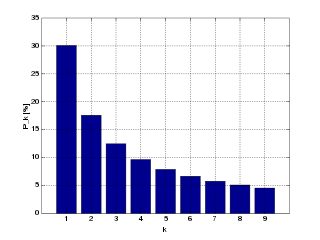In ordinary language, a crime is an unlawful act punishable by a state or other authority. The term crime does not, in modern criminal law, have any simple and universally accepted definition, though statutory definitions have been provided for certain purposes. The most popular view is that crime is a category created by law; in other words, something is a crime if declared as such by the relevant and applicable law. One proposed definition is that a crime or offence is an act harmful not only to some individual but also to a community, society, or the state. Such acts are forbidden and punishable by law.

A sex worker is a person who provides sex work, either on a regular or occasional basis. The term is used in reference to those who work in all areas of the sex industry.
Sharia,Sharī'ah, Shari'a, Shariah or Syariah is a body of religious law that forms a part of the Islamic tradition based on scriptures of Islam, particularly the Qur'an and hadith. In Arabic, the term sharīʿah refers to Allah's immutable divine law and this is contrasted with fiqh, which refers to its interpretations by Islamic scholars. Fiqh, in a sense the practical application side of sharia, was manipulated over the centuries by illegal opinions issued by qualified jurists and sharia has never been the sole valid legal system in Islam historically; it has always been used alongside customary law from the beginning, and applied in courts by ruler-appointed judges, integrated with various economic, criminal and administrative laws issued by Muslim rulers.

Benford's law, also known as the Newcomb–Benford law, the law of anomalous numbers, or the first-digit law, is an observation that in many real-life sets of numerical data, the leading digit is likely to be small. In sets that obey the law, the number 1 appears as the leading significant digit about 30% of the time, while 9 appears as the leading significant digit less than 5% of the time. Uniformly distributed digits would each occur about 11.1% of the time. Benford's law also makes predictions about the distribution of second digits, third digits, digit combinations, and so on.

Gun control, or firearms regulation, is the set of laws or policies that regulate the manufacture, sale, transfer, possession, modification, or use of firearms by civilians.
Newton's laws of motion are three physical laws that describe the relationship between the motion of an object and the forces acting on it. These laws, which provide the basis for Newtonian mechanics, can be paraphrased as follows:
- A body remains at rest, or in motion at a constant speed in a straight line, except insofar as it is acted upon by a force.
- At any instant of time, the net force on a body is equal to the body's acceleration multiplied by its mass or, equivalently, the rate at which the body's momentum is changing with time.
- If two bodies exert forces on each other, these forces have the same magnitude but opposite directions.

A Juris Doctor, Doctor of Jurisprudence, or Doctor of Law (JD) is a graduate-entry professional degree that primarily prepares individuals to practice law. In the United States, it is the only qualifying law degree, while other jurisdictions, such as Australia, Canada, and Hong Kong, offer both the postgraduate JD degree as well as the undergraduate LL.B., BCL, or other qualifying law degree depending on the requirements of the jurisdiction where the person will practice law.

Harvard Law School (HLS) is the law school of Harvard University, a private research university in Cambridge, Massachusetts. Founded in 1817, Harvard Law School is the oldest law school in continuous operation in the United States.

Law and economics, or economic analysis of law, is the application of microeconomic theory to the analysis of law. The field emerged in the United States during the early 1960s, primarily from the work of scholars from the Chicago school of economics such as Aaron Director, George Stigler, and Ronald Coase. The field uses economics concepts to explain the effects of laws, to assess which legal rules are economically efficient, and to predict which legal rules will be promulgated. There are two major branches of law and economics; one based on the application of the methods and theories of neoclassical economics to the positive and normative analysis of the law, and a second branch which focuses on an institutional analysis of law and legal institutions, with a broader focus on economic, political, and social outcomes, and overlapping with analyses of the institutions of politics and governance.

Yale Law School (YLS) is the law school of Yale University, a private research university in New Haven, Connecticut. It was established in 1824. The 2020–21 acceptance rate was 4%, the lowest of any law school in the United States. Its yield rate of 87% is also consistently the highest of any law school in the United States.

The American Bar Association (ABA) is a voluntary bar association of lawyers and law students; it is not specific to any jurisdiction in the United States. Founded in 1878, the ABA's stated activities are the setting of academic standards for law schools, and the formulation of model ethical codes related to the legal profession. As of fiscal year 2017, the ABA had 194,000 dues-paying members, constituting approximately 14.4% of American attorneys. In 1979, half of all lawyers in the U.S. were members of the ABA. The organization's national headquarters are in Chicago, Illinois, and it also maintains a significant branch office in Washington, D.C.

The Georgetown University Law Center is the law school of Georgetown University, a private research university in Washington, D.C., United States. It was established in 1870 and is the largest law school in the United States by enrollment, with over 2,000 students. It frequently receives the most full-time applications of any law school in the United States.

The Bluebook: A Uniform System of Citation is a style guide that prescribes the most widely used legal citation system in the United States. It is taught and used at a majority of U.S. law schools and is also used in a majority of federal courts. Legal publishers also use several "house" citation styles in their works.

The University of Michigan Law School is the law school of the University of Michigan, a public research university in Ann Arbor, Michigan. Founded in 1859, the school offers Master of Laws (LLM), Master of Comparative Law (MCL), Juris Doctor (JD), and Doctor of the Science of Law (SJD) degree programs.
The Yale Law Journal (YLJ) is a student-run law review affiliated with the Yale Law School. Published continuously since 1891, it is the most widely known of the eight law reviews published by students at Yale Law School. The journal is one of the most cited legal publications in the United States and usually generates the highest number of citations per published article.

The University of Virginia School of Law is the law school of the University of Virginia, a public research university in Charlottesville, Virginia.
International law is the set of rules, norms, and standards that states and other actors feel an obligation to obey in their mutual relations and generally do obey. In international relations, actors are simply the individuals and collective entities, such as states, international organizations, and non-state groups, which can make behavioral choices, whether lawful or unlawful. Rules are formal, often written expectations for behavior and norms are less formal, customary expectations about appropriate behavior that are frequently unwritten. It establishes norms for states across a broad range of domains, including war and diplomacy, economic relations, and human rights.
A law review or law journal is a scholarly journal or publication that focuses on legal issues. A law review is a type of legal periodical. Law reviews are a source of research, imbedded with analyzed and referenced legal topics; they also provide a scholarly analysis of emerging legal concepts from various topics. The primary function of a law review is to publish scholarship in the field of law. Law reviews publish lengthy, comprehensive treatments of subjects, that are generally written by law professors, and to a lesser extent judges, or legal practitioners. The shorter pieces, attached to the articles, commonly called "notes" and "comments", often are written by law student members of the law review. Law review articles often express the thinking of specialists or experts with regard to problems, in a legal setting, with potential solutions to those problems. Historically, law review articles have been influential in the development of the law; they have been frequently cited as persuasive authority by courts. Some law schools publish specialized reviews, dealing with a particular area of the law, such as civil rights and civil liberties, international law, environmental law, and human rights. Some specialized reviews focus on statutory, regulatory, and public policy issues.
A sovereign state is a state that has the highest authority over a territory.












